Stefan O'Toole
Sampling from Pre-Images to Learn Heuristic Functions for Classical Planning
Jul 07, 2022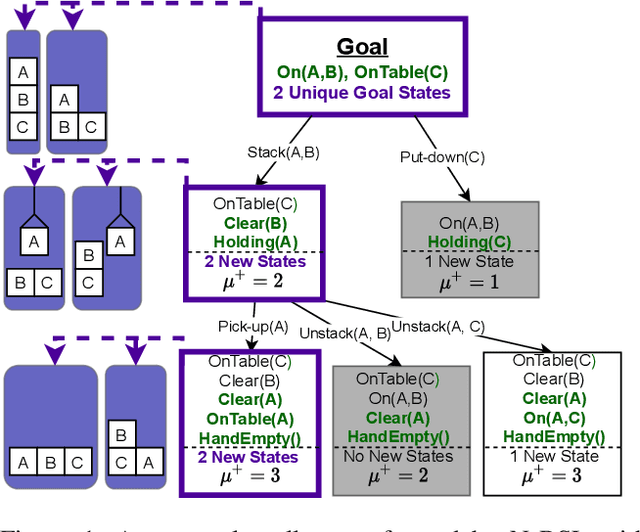
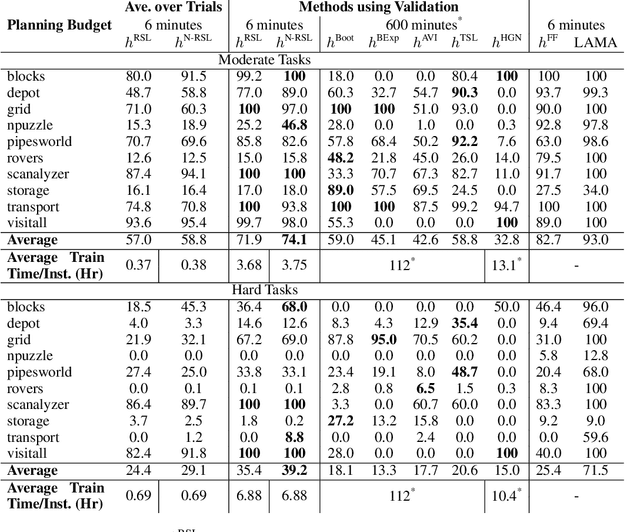
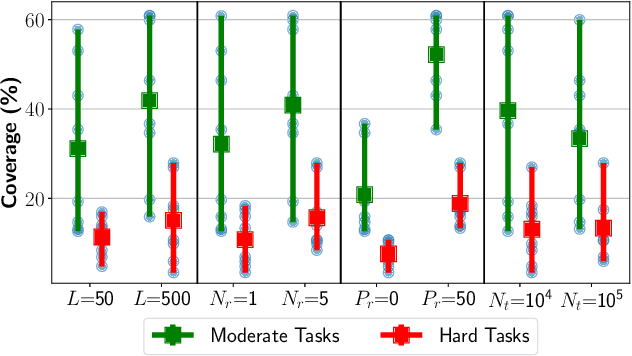
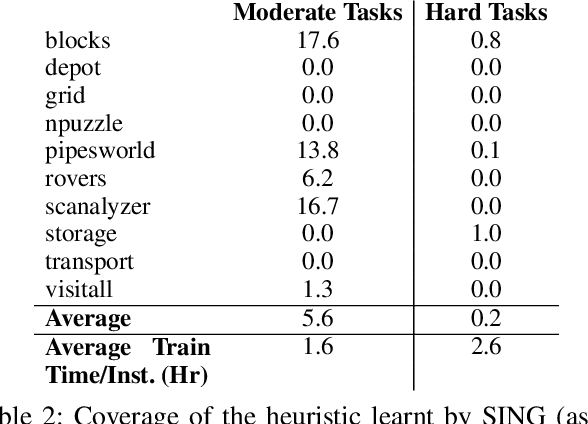
Abstract:We introduce a new algorithm, Regression based Supervised Learning (RSL), for learning per instance Neural Network (NN) defined heuristic functions for classical planning problems. RSL uses regression to select relevant sets of states at a range of different distances from the goal. RSL then formulates a Supervised Learning problem to obtain the parameters that define the NN heuristic, using the selected states labeled with exact or estimated distances to goal states. Our experimental study shows that RSL outperforms, in terms of coverage, previous classical planning NN heuristics functions while requiring two orders of magnitude less training time.
Width-based Lookaheads with Learnt Base Policies and Heuristics Over the Atari-2600 Benchmark
Jun 23, 2021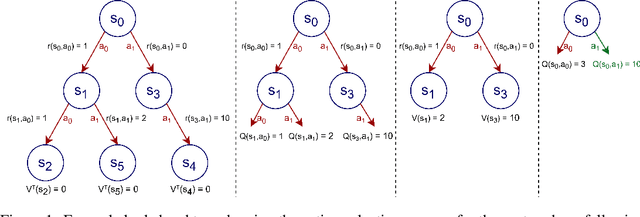

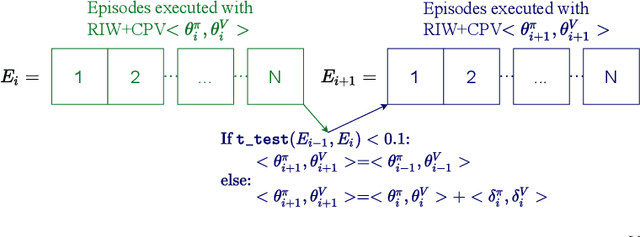

Abstract:We propose new width-based planning and learning algorithms applied over the Atari-2600 benchmark. The algorithms presented are inspired from a careful analysis of the design decisions made by previous width-based planners. We benchmark our new algorithms over the Atari-2600 games and show that our best performing algorithm, RIW$_C$+CPV, outperforms previously introduced width-based planning and learning algorithms $\pi$-IW(1), $\pi$-IW(1)+ and $\pi$-HIW(n, 1). Furthermore, we present a taxonomy of the set of Atari-2600 games according to some of their defining characteristics. This analysis of the games provides further insight into the behaviour and performance of the width-based algorithms introduced. Namely, for games with large branching factors, and games with sparse meaningful rewards, RIW$_C$+CPV outperforms $\pi$-IW, $\pi$-IW(1)+ and $\pi$-HIW(n, 1).
 Add to Chrome
Add to Chrome Add to Firefox
Add to Firefox Add to Edge
Add to Edge